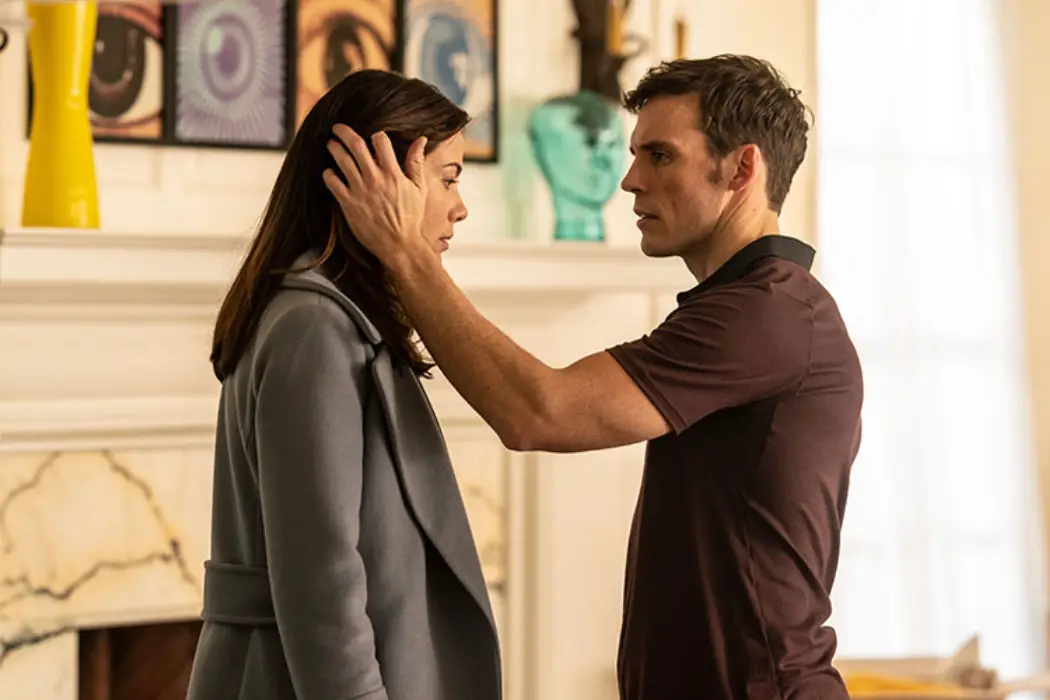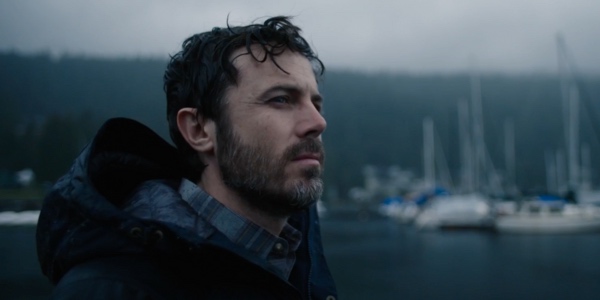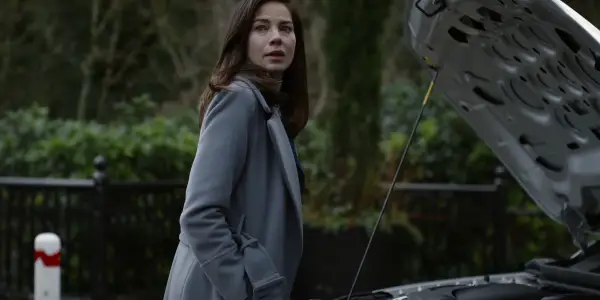“I Think Great Films Come Out Of Great Character And Great Story.” Interview With Director Vaughn Stein Of EVERY BREATH YOU TAKE

Stephanie Archer is 39 year old film fanatic living in…
Every Breath You Take is a deep character study in the disconnected yet shared grief of a family as they navigate their lives following a devastating loss. Infused and compounded by mystery, intrigue, and thrills, the film challenges viewers not only on the experience of grief but the path taken to not only overcome but become stronger both in self and in those around you. I had the chance to speak with Vaughn Stein, the film’s director, about what attracted him to the project, about the aesthetic he was able to create, and the shadows of shared grief.
Stephanie Archer for Film Inquiry: Congratulations on your film and thank you for taking the time to speak with me. Every Breath You Take is full of a lot of twists and turns, mystery and intrigue. What was it that attracted you to the project?
Vaugh Stein: I remember reading it for the first time and having that kind of visceral reaction you get when you’re reading a page-turner or when you are watching a film and you don’t know which way it is going to go. It just really grabbed me. I love twists and turns – as a filmmaker I love surprises – but I think when a film has such a grounded set of characters at its heart when there is this great sense of character drama to it, that really grabs me. I think great films come out of great character and a great story.
It’s interesting, you mentioned the characters a lot there. The film itself centers a lot around grief and loss but from a variety of perspectives – through each of these characters. What was the process and the decision-making with regards to filmmaking and both creating and capturing each character’s journey?

Vaughn Stein: That’s a good answer. Great question. I mean, grief is such a universal thing. We all experience grief and the shadow it can have on one’s life is scary if one doesn’t do with it, you know, the effects and the impacts it can have. And I think for us, you know, discussing it with the cast – Casey [Affleck], Michelle [Monaghan] and India [Eisley] – it was the idea of everyone retreating as opposed to this family coming together to deal with this unimaginable loss, you know, they sort of lost their way. They have lost their ability to communicate. They have lost their ability to empathize. In the parents’ case, Phillip and Grace’s case, they were burying themselves in their work. They were burying their grief in the day-to-day. And it was all about order and control and swimming laps in the pool, burying yourself in your clients, in Phillip’s case.
And in India’s case, in Lucy’s case, it was tragic. It was rebellion, it was kind of acting out. Looking for attention is completely reductive – it wasn’t that. It was trying to find a way back in with her parents that was driving her. And I think that was the idea of capturing that grief – was very central to what the cast and I wanted to do. And in terms of production design and cinematography, we wanted to create this gilded cage in the house. A lot of it takes place in the house. This idea that money and success, like it can not buy you happiness, it can’t buy you your way out of grief. It will always be sitting on your shoulder, it will always be a shadow over you. We wanted to capture that in the coldness of the house. We talked a lot, the production designer Jeremy [Stanbridge] and I, about the inverted haunted house. This idea that it was cold, that it was lacking in love, everything was sort of hard edges and the lines were too clean. It wasn’t somewhere they felt comfortable. And Michael Merriman, the amazing cinematographer, we wanted to frame it in such a way that the family felt removed and they felt distant from one another.
You see that really early on too, the family each has their own section of the house and not just the style of the house, but where they place themselves. You mentioned the shadow of grief. The film also has this color, kind of a dulled leeched color to it, with pockets of orange and blue, which really compliment the house. What was the process behind creating the aesthetic with all the colors or lack of colors in some senses?

Vaughn Stein: That’s a really astute observation. We wanted to depress the color palette, to literally depress it, to mute it, and bring it down to a level where it was such a reflection of the emotional state of the characters. They really couldn’t help, but be sort of be sucked into their sadness and their grief. So actually, Casey and I from very early on, talked a lot about how psychiatrists tend to wear quite warm tones, comforting tones – some gentle browns, not too deep blues, and green. What we also wanted to do with that was then make those colors very cold, apart from his office, which is his sanctuary, where those colors kind of popped a lot more – that orange in the fireplace, the feeling of there being some comfort there. Then the rest of the house we really pulled the color out in terms of the design and in terms of the lights that Mike used as well, just to create that sort of coldness. I mean, we shot in the Pacific Northwest, up near Seattle. We shot in Canada and Vancouver – absolutely stunning up there – and we really wanted… they call it BC green, the Canadian crew, that sort of really firm and lustrous green. We wanted to bring that into the film as well.
I just have one last question. There were a lot of details in this film that really struck me – one of them being at the beginning, at the very beginning, of the first scene, and the opening. There’s a lot of closeups of the mother and her son and it’s very intimate, but that doesn’t continue throughout the entirety of the film. Was that a purposeful decision and what was the thought behind it?
Vaughn Stein: Exactly that. The idea that we were setting up this happiness, this intimacy, and their relationship was ripped apart. And the idea was to utilize the cold opening to show Grace, to show Michelle’s character, which she acted so beautifully, as this kind of very happy and carefree and maternal person. We wanted it to have this sense of memory, it has movement within it, some poetry the way that we shot that. It feels like a memory I hope. Then you arrive into this cold and ordered and callus world when we bring the film. That juxtaposition was very important to us and hopefully sets the tone quite nicely from the beginning.
Film Inquiry thanks Vaughn Stein for taking the time to speak with us!
Every Breath You Take with be released own theaters and on VOD on April 2, 2021.
Watch Every Breath You Take
Does content like this matter to you?
Become a Member and support film journalism. Unlock access to all of Film Inquiry`s great articles. Join a community of like-minded readers who are passionate about cinema - get access to our private members Network, give back to independent filmmakers, and more.













